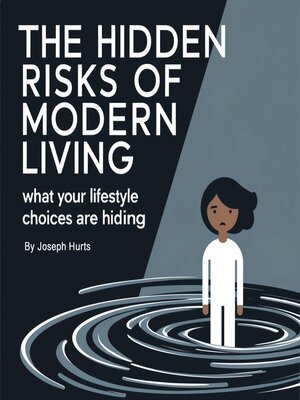The Hidden Risks of Modern Living
audiobook (Unabridged) ∣ What Your Lifestyle Choices Are Hiding
By Joseph Hurts

Sign up to save your library
With an OverDrive account, you can save your favorite libraries for at-a-glance information about availability. Find out more about OverDrive accounts.
Find this title in Libby, the library reading app by OverDrive.



Search for a digital library with this title
Title found at these libraries:
| Library Name | Distance |
|---|---|
| Loading... |
This audiobook is narrated by a digital voice.
Modern life presents itself as the safest, most comfortable, and most convenient period in human history, and by many traditional measures, this assessment is accurate. We live longer than our ancestors, have access to medical treatments that would have seemed miraculous just decades ago, and enjoy material comforts that previous generations could never have imagined. Yet beneath this veneer of safety and progress lies a complex web of new risks that are largely invisible to the average person living their daily life. These hidden dangers emerge not from the obvious threats that our ancestors faced, but from the very systems, technologies, and lifestyle choices that we have embraced as solutions to age-old human problems.
The modern safety paradox reveals itself in how our attempts to eliminate traditional risks have created entirely new categories of danger that we are only beginning to understand. Our ancestors worried about immediate threats like predators, starvation, and exposure to the elements. Today, we have largely conquered these immediate dangers, but in doing so, we have created environments and lifestyles that expose us to chronic, long-term risks that are much more difficult to perceive and understand. These new risks operate on timescales that extend far beyond our natural ability to recognize cause and effect relationships, making them particularly insidious.
The speed of technological and social change has outpaced our biological evolution, creating fundamental mismatches between the environments we now inhabit and the bodies and minds that evolved over millions of years in very different circumstances. Our nervous systems, digestive systems, sleep cycles, and social bonding mechanisms all evolved for life in small groups engaged in physical activity in natural environments.







